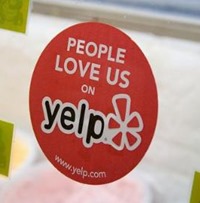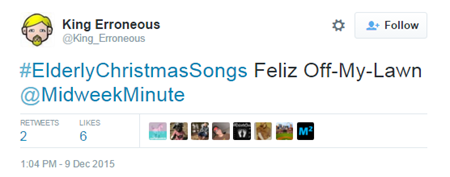
I spent last Thursday and Friday in Disney World. It wasn’t a pleasure trip, although Epcot was toured during some down time. I was invited to speak at this year’s
Ragan Social Media Conference, which, I have to say, was one of the best organized and produced events I’ve ever attended. It was a day-and-a-half of cutting edge information on using social media for marketing and PR. My session covered how employers can protect their brands from employee social-media missteps. It’s always fun to watch a room full of non-employment lawyers’ mouths gape when I start talking about the NLRB.
So, to anyone out there who was at my session,
Chipotle Services LLC, decided earlier this week by an NLRB judge, is mandatory reading.
The case involves an employee fired by Chipotle after he took to his personal Twitter account to voice his displeasure about the state of his wages and other working conditions at Chipotle. For example, in response to a customer who tweeted “Free chipotle is the best thanks,” the employee replied, “nothing is free, only cheap #labor. Crew members only make $8.50hr how much is that steak bowl really?” Another, directed at Chipotle’s communication director, concerned a lack of pay for snow days.
The NLRB judge had little trouble concluding that Chipotle had fired the employee for engaging in protected concerted activity: speech about his wages, benefits, or other terms and conditions of employment between or among employees.
I agree that the NLRA protects tweets about wages and days off. Pay attention, however, to how this judge defines “concerted”, as it is becoming apparent that one employee, voicing his concerns to about work on social media, without any engagement from co-workers, is sufficient to constitute “concerted” protected activity:
Kennedy’s tweet concerning snow days was directed to Chipotle’s communications director but visible to others; Kennedy’s other two tweets were in response to customer postings, and likewise visible to others. All these postings had the purpose of educating the public and creating sympathy and support for hourly workers in general and Chipotle’s workers in specific. They did not pertain to wholly personal issues relevant only to Kennedy but were truly group complaints. I conclude that Kennedy’s postings constitute protected concerted activity.
In other words, as long as an employee is addressing a group complaint, the activity is concerted, regardless of whether any other employee engages.
Earlier this year, I predicted the breadth of the NLRB’s coverage of “concerted” in social-media cases:
If, as the Board suggest, employee intent is the measuring stick for whether a lone employee’s activity is concerted, then any employee’s solitary social-media post can be considered concerted merely by the employee stating an intent to initiate or induce group action. And, since social media is inherently social (i.e., group in nature), doesn’t this test suggest that all such activity is concerted.
So, we have another social media case in which an employee triumphs over an employer based on a liberal interpretation of NLRA protections. Fear not employers, for this case has a silver lining.
According to Jane von Bergen of the Philadelphia Inquirer, the employee has offered to accept food vouchers in lieu of back pay: “You cannot deny that their food is delicious, but their labor policies were atrocious.” If only every case was that simple to resolve.




 Consider the following scenario. An employee makes offensive posts on his personal Facebook page about one of your customers, which include the following:
Consider the following scenario. An employee makes offensive posts on his personal Facebook page about one of your customers, which include the following: By now, you’ve likely heard about the employee fired by Yelp for her
By now, you’ve likely heard about the employee fired by Yelp for her 




 Today, we are going to try something new — a guest post. Readers, meet
Today, we are going to try something new — a guest post. Readers, meet  Does the National Labor Relations Act protect the mere act of an employee clicking the “Like” button on Facebook? According to
Does the National Labor Relations Act protect the mere act of an employee clicking the “Like” button on Facebook? According to  Have you downloaded
Have you downloaded